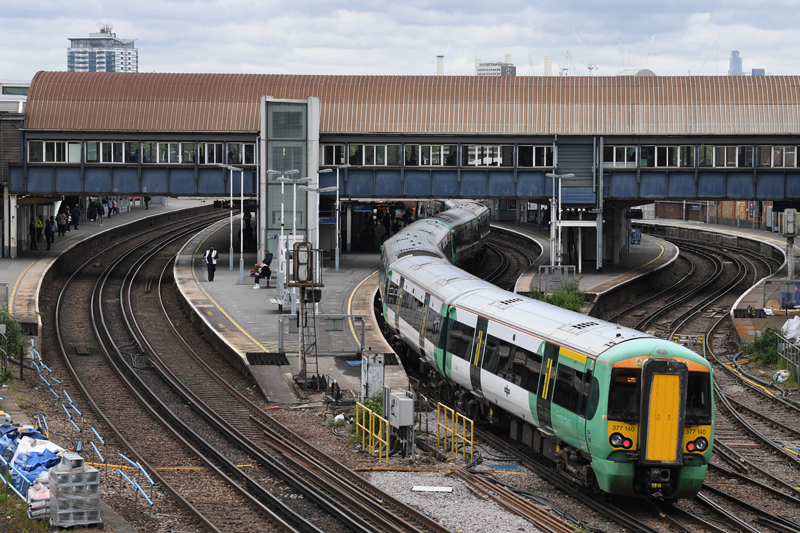LONDON: Britain yesterday unveiled long-awaited reforms of the country's railways, including a new centralized price and reservations system, but the government insisted it was not backtracking on the sector's privatization. Launching a new public body, Great British Railways, whose name has echoes of nationalized British Rail in the last century, Prime Minister Boris Johnson's pro-privatization government will take greater control of the sector. As part of the reforms, the Conservative government will offer flexible season tickets, with office workers continuing to work from home amid the coronavirus pandemic.
"Great British Railways will integrate the railways, owning the infrastructure, collecting fare revenue, running and planning the network, and setting most fares and timetables," the Department for Transport said in a statement. The government insisted its plan was "not renationalization", adding it believed state control "failed the railways". "Rather, it is simplification... (and) private companies will be contracted to run the trains, with stronger competition to run services," it added.
Service upgrade
Britain's rail tracks are already in state hands but the trains are run by mostly private companies enjoying large government subsidies. And since privatization of the sector in the mid-1990s, the taxpayer has been forced to take control of financially-struggling franchises. Johnson believes an improved rail sector can help to drive Britain's post-Brexit economy and last year allowed construction to begin on the country's new high-speed HS2 railway despite soaring costs.
"I am a great believer in rail, but for too long passengers have not had the level of service they deserve," the prime minister said in the statement. "By creating Great British Railways, and investing in the future of the network, this government will deliver a rail system the country can be proud of." The announcement comes after the government in September ended the train operators' franchise system that existed for 24 years. Franchising was criticized by both train companies and passengers for its inefficiency, while the latest reforms sparked varied reaction.
"The government is right to pursue more flexible ticketing policies, especially in the light of the pandemic," said Robert Colvile, director of the Centre for Policy Studies think-tank. Manuel Cortes, general secretary of transport union TSSA, dismissed the plans as "papering over the cracks", insisting that taxpayer money would continue to benefit private train operators. Shares in online bookings site Trainline plunged 27 percent with it set to face competition from the government's own platform.
Passenger focus
Britain launched its "root and branch" review of the rail sector before the pandemic struck, as commuters battled frustratingly frequent delays and persistently high fares. Recommendations put forward by review chairman Keith Williams, a former British Airways chief executive, have since taken into account the pandemic's impact on the railways.
The latest plan "is built around the passenger, with new contracts which prioritize excellent performance and better services, better value fares, and creating clear leadership and real accountability when things go wrong", Williams said. "Our railway history-rich with Victorian pioneers and engineers, steam and coal, industry and ingenuity-demands a bright future."
Official data has shown that about 35 million UK rail journeys were made in the second quarter of 2020 amid the country's first lockdown-down from more than 400 million a year earlier. This was a level last seen in the mid-19th century, according to the Office of Rail and Road. As a result, the state has handed significant financial support to operators during the pandemic.
Green agenda
Transport Secretary Grant Shapps said Great British Railways-a result of the Williams-Shapps Plan-offers "a modern and green railway", helping the UK to meet its net zero carbon emissions targets. Speaking later to Sky News, the minister described the current system as "too complicated", adding: "But I don't want to go back to the days of British Rail either. We had declining passenger numbers and railway stations closed." Prior to the pandemic, rail passenger journeys in Britain hit record highs. - AFP



